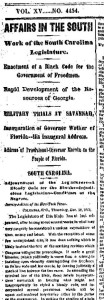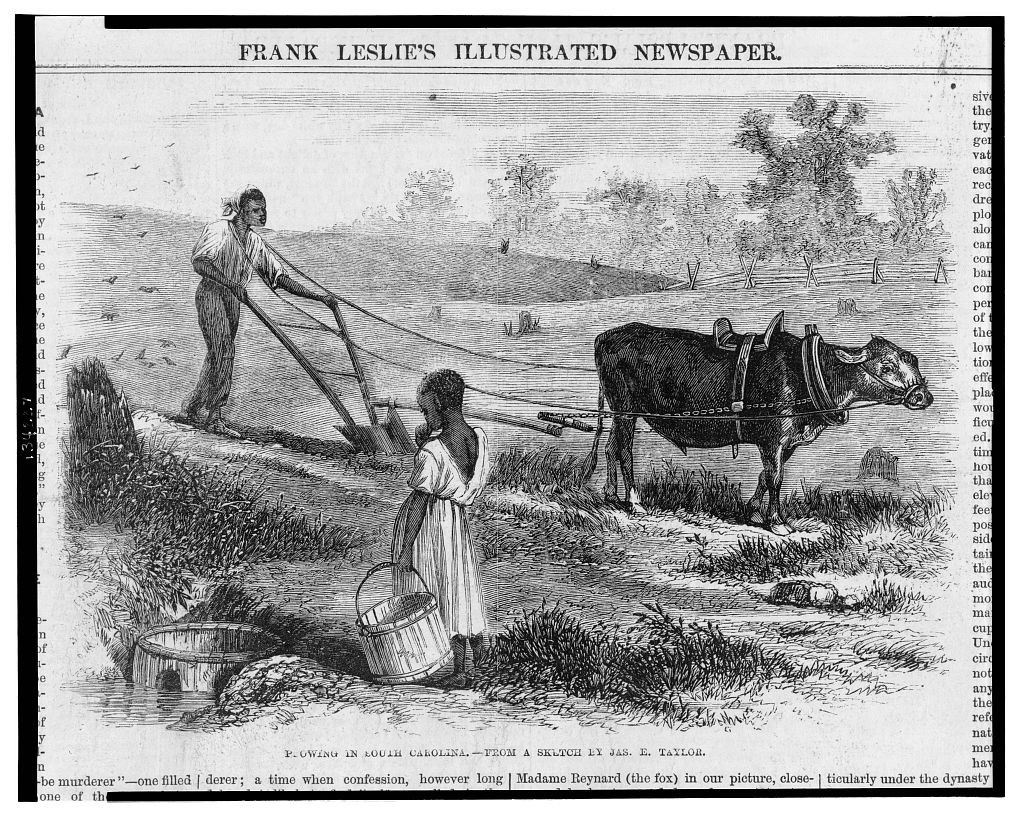150 years ago this week New Yorkers could read about South Carolina’s enactment of a Black Code for the governance of freedmen. Eric Foner summarizes the code, which:
contained provisions, such as prohibiting the expulsion of aged freedmen from plantations, designed to reinvigorate paternalism and clothe it with the force of law. It did not forbid blacks to rent land, but barred them from following any occupation other than farmer or servant except by paying an annual tax from $10 to $100 (a severe blow to the free black community of Charleston and to former slave artisans). The law required blacks to sign annual contracts and included elaborate provisions regulating relations between “servants” and their “masters,” including labor from sunup to sundown and a ban on leaving the plantation, or entertaining guests upon it, without permission of the employer. A vagrancy law applied to unemployed blacks, “persons who lead idle or disorderly lives,” and even traveling circuses, fortune tellers, and thespians.[1]
“[T]he most flagrant provisions of the Black Coded never went into effect.”General Dan Sickles, head of the Freedmen’s Bureau in South Carolina, suspended South Carolina’s code, apparently by the end of 1865.[2]
Reportedly, a border state enforced a black code as early as 1864. From the Richmond Daily Dispatch July 24 1864:
Black Codes in slave and Fare [Free] States.
The New York Commercial says:
A few days ago a colored clergyman from Canada, Mr. Kinnard, attended the Methodist Conference of colored ministers at Philadelphia. Mr. Kinnard was born in Delaware, and after the conference visited his old home. At Camden he was arrested under the black code of Delaware, and was fined fifty dollars and costs for coming into the State.–In default of ability to pay the fine he was sold, and was purchased by the brother of the man who emancipated him. He released him, and gave a bond that Mr. Kinnard should leave the State at once. Mr. Kinnard then went to Washington and sought redress, as a British subject, from Lord Lyons. The case is very properly regarded as an illustration of the infamous crimes against human rights and personal liberty of which slavery is capable.


